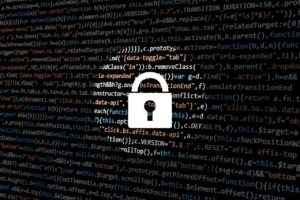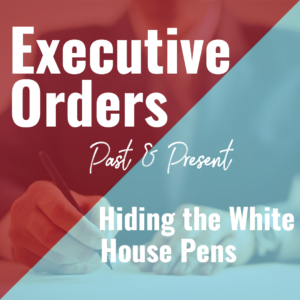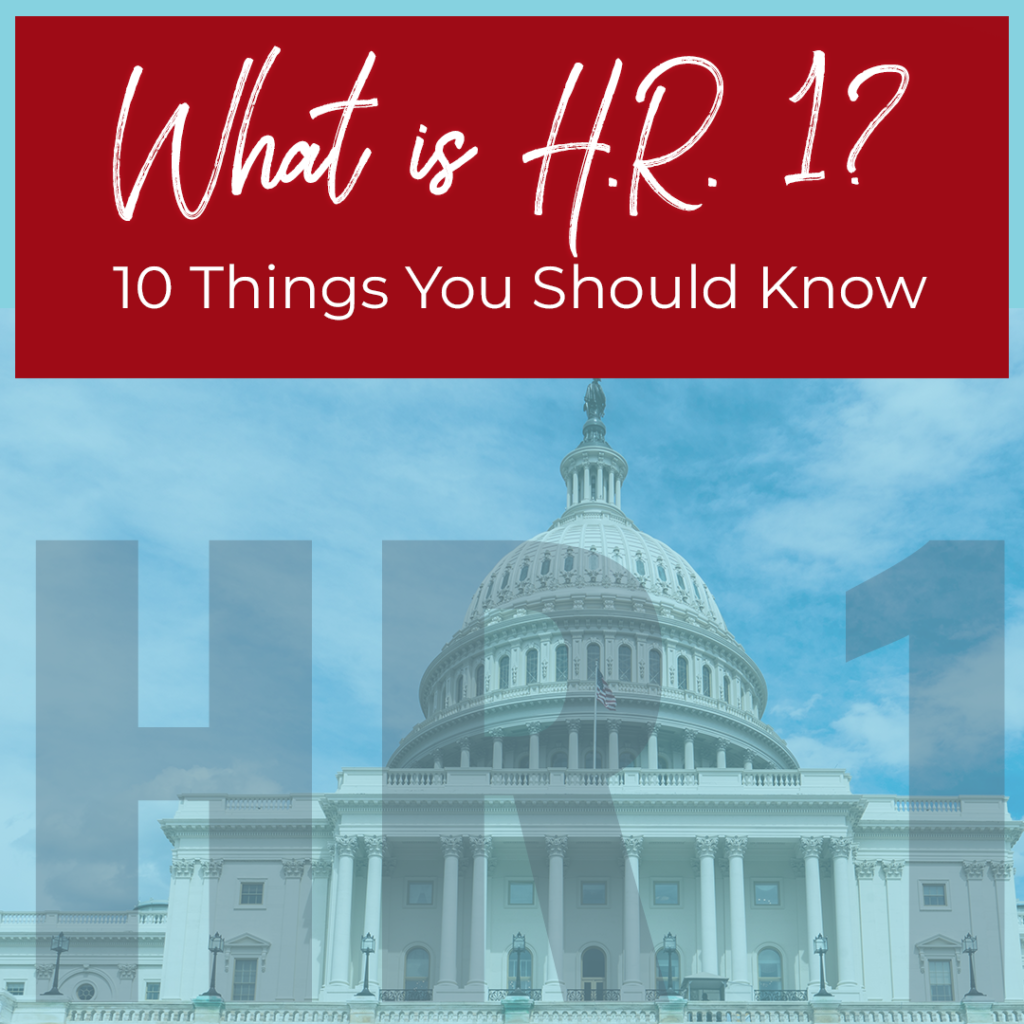H.R. 1, also known as the For the People Act, was passed by the House of Representatives (220-210) on March 3, 2021. At nearly 800 pages, the bill is a monstrous piece of legislation to reform the American election process
The bill’s stated purpose is as follows:
“To expand Americans’ access to the ballot box, reduce the influence of big money in politics, strengthen ethics rules for public servants, and implement other anti-corruption measures for the purpose of fortifying our democracy, and for other purposes.”
There is more to this bill than I can cover in a short article, so I’m breaking it down into ten things you should know about H.R. 1. But, as always, if you want to know more, I recommend visiting the Heritage Foundation’s article on this bill and reading some of the bill yourself.
Click to Contact Your Senators!
Visit Senate.Gov to contact your State Senators and call or email them, asking them not to pass this bill. Our senators need to hear the American people’s voice in this matter.
1. Centralizes the Voting Process
H.R. 1 centralizes the American election system. In other words, it takes the power of the states in the election process and places it in the hands of the federal government. Not a good thing in view of the tensions during the 2020 election. States need to have a say in how their elections are run.
2. Destroys State Voter ID Laws
State ID laws will become a thing of the past and another example of the federal government stealing power that belongs to the states. This would come as a hard blow to states that have fought to keep voter identity honest. Now, instead of bringing a valid ID to the polls, voters can just sign a statement acknowledging they are who they claim to be.
This also allows people to vote in several different states because states can no longer compare voter registration lists.

3. Allows Same-Day Registration
H.R. 1 will allow same-day registration (i.e. you show up at the polls to get registered AND vote all in one shot). Same-day registration is anything but good because it increases voter fraud. When individuals are registering the day they show up at the polls to vote, election officials cannot verify each person’s identity.
It will also make it difficult to gauge how many voters will show up at the polls. How many precinct workers and ballots does each polling location need? When voters can register same-day, this is impossible to estimate.
4. Allows Under-Age Voting
16-year olds are automatically allowed to vote under H.R. 1. States are not necessarily required to allow 16-year olds to vote, but H.R. 1 does require states to automatically register them when they show up at the polls (Daily Caller).
The bill states, “A State may not refuse to treat an individual as an eligible individual […] on the grounds that the individual is less than 18 years of age at the time a contributing agency receives information with respect to the individual, so long as the individual is at least 16 years of age at such time.”
https://twitter.com/SpeakerPelosi/status/1367284385670713345
5. Legalizes Ballot Harvesting
Ballot harvesting will become a legal practice under H.R. 1. The bill states, “The State […] may not put any limit on how many voted and sealed absentee ballots any designated person can return to the post office, a ballot drop-off location, tribally designated 21 building, or election office.”
H.R. 1 opens a big door for paid ballot harvesters to do their seasonal job.
6. The Justice Department Will Manage Social Media
H.R. 1 also allows the Justice Department to remove social media posts by foreign agents, via the Foreign Agent Disclaimer Enhancement (FADE) Act.
According to the Daily Caller, “The FADE Act requires that disclaimers on ‘informational materials for or in the interests of a foreign principal which are transmitted or caused to be transmitted by an agent of a foreign principal’ be included on social media sites with more than 50 million monthly users.”
If these disclaimers are not used, H.R. 1 allows the Attorney General to “remove such materials and use reasonable efforts to inform recipients of such materials that the materials were disseminated by a foreign agent on behalf of a foreign principal” (Daily Caller).

RELATED: How Do Executive Orders Work?
7. Allows Online Voter Registration
H.R. 1 allows online voter registration that is not tied to a driver’s license, meaning there is virtually no way to verify a voter’s identity.
8. Reduces the Number of Federal Election Commission Members
The Federal Election Commission is currently comprised of 6 members (four of which are active). To keep things fair, it is always split fifty percent Democrat and Republican. It requires a minimum of four members to sign in agreement to any decision before the decision can pass. “This prevents the party in control of the White House from enforcing the law in a partisan fashion” (The Daily Signal).
So what does H.R. 1 have to do with all of this?
H.R. 1 cuts the committee from an even number of 6 to an odd number of 5 members and allows the president to pick three members of the committee. With only 5 members, this would make the Federal Election Commission a partisan committee.
9. Allows Released Felons to Vote
H.R. 1 would allow felons to vote as soon as they step foot outside of prison even if they have unfulfilled parole or probation. However, if a felon is in prison during the election, he or she will not be allowed to vote while serving time.
10. Extends Election Day
H.R. 1 extends the length of the election process by requiring states to accept ballots submitted up to 10 days after Election Day. Extended elections factored in as part of the 2020 elections nightmare where ballots continued appearing and states continued counting and re-counting.
Whether or not there was fraud during the 2020 election is not the point here. The point is that elections should end on Election Day, not 10 days, 30 days, or even two months later. The Founders set Election Day for a reason, and we should stick with it.
Conclusion
So there you have it. Ten things you should know about H.R. 1 (among other things)! I encourage you to email and call your state senators and ask them not to pass this bill. The House passed it, and now it is up to the Senate.

The message and instructions are confusing. Is it STATE SENATORS or TWO-PER-STATE UNITED STATES SENATORS who will vote? It seems to me that it is a power grab by the House leaders, AND THEREFORE A LOUSY IDEA THAT SHOULD NOT SEE THE LIGHT OF DAY.!
I’m not quite sure what you mean by how many senators will vote – perhaps you are talking about which senators to contact? In that case, all senators (two-per-state United States senators) would need to be contacted, and you could contact the two from your state. However, don’t quote me on this, but I believe H.R. 1 has been pushed back for a while. It is still important to know what it is and, like you said, not let it see the light of day when it comes up next!